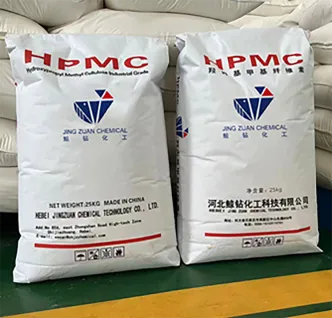
des . 12, 2024 09:14 Back to list
hydroxyethyl cellulose solubility in water
Hydroxyethyl Cellulose Solubility in Water and Its Significance
Hydroxyethyl cellulose (HEC) is a water-soluble polymer derived from cellulose, which has undergone chemical modification to improve its solubility and functional properties. This compound is widely utilized in various industries, including pharmaceuticals, cosmetics, food, and construction, due to its unique characteristics, such as high viscosity, film-forming ability, and non-toxic nature. Understanding the solubility of hydroxyethyl cellulose in water is essential for maximizing its benefits in these applications.
HEC is created by the reaction of cellulose with ethylene oxide, a process that introduces hydroxyethyl groups into the cellulose structure. These modifications enhance the molecule's hydrophilicity, making it soluble in water. The degree of substitution, which refers to the average number of hydroxyethyl groups introduced per glucose unit of the cellulose polymer, plays a critical role in determining the solubility of HEC. Generally, higher degrees of substitution enhance water solubility. However, it is important to strike a balance, as excessive substitution can lead to a reduction in the gel-forming ability and viscosity of the solution.
One of the remarkable features of hydroxyethyl cellulose is its capacity to form transparent and stable solutions in water. The solubility of HEC is influenced by several factors, including temperature, pH, and the presence of electrolytes. As the temperature increases, the solubility of HEC typically improves, allowing for its use in applications where temperature variation is expected. Moreover, HEC demonstrates unique behavior in response to changes in pH; it remains soluble across a wide pH range, making it versatile for different formulations.
In pharmaceutical formulations, HEC is frequently used as a thickening agent, binder, and stabilizer. Its solubility in water allows it to be easily incorporated into various liquid and semi-solid dosage forms, such as gels and ointments. This polymer enhances the viscosity of formulations, improving their stability and consistency while ensuring the even distribution of active ingredients. The water solubility of HEC ensures that these products can be effectively applied or administered, which is particularly important in topical and oral medications.
hydroxyethyl cellulose solubility in water

In the cosmetic industry, HEC is prized for its thickening and emulsifying properties. Its ability to dissolve in water makes it an essential ingredient in lotions, creams, and shampoos, where it helps create a smooth texture and enhances product performance. Additionally, HEC's film-forming capabilities allow for better application and adherence of cosmetic products to the skin, which can improve the overall user experience.
The food industry also benefits from the use of hydroxyethyl cellulose. It is commonly employed as a stabilizer and thickener in various food products, contributing to a pleasant mouthfeel and texture. Since HEC is non-toxic and safe for consumption, its solubility in water makes it a suitable additive in items like sauces, dressings, and dairy products. Furthermore, its ability to form gels and retain moisture helps extend the shelf life of food products.
Another important application of hydroxyethyl cellulose is in construction materials, particularly in cement and mortar. HEC helps to improve workability and adhesion while preventing segregation. Its water solubility ensures that it can be easily mixed into emulsions and pastes, allowing for smooth application during construction processes.
In conclusion, the solubility of hydroxyethyl cellulose in water is a key characteristic that underpins its utility across various industries. From pharmaceuticals to cosmetics and food products, HEC’s ability to form stable, viscous solutions enhances product performance and efficacy. Understanding and harnessing this solubility allows manufacturers to utilize HEC effectively, improving both the formulation and end-user experience. As research and development continue, the applications of hydroxyethyl cellulose are expected to expand even further, showcasing its versatility and significance in modern industry.
-
Why HPMC is a Key Additive in Wall Putty Formulations
NewsAug.05,2025
-
Redispersible Powder in Decorative Renders: Function Meets Finish
NewsAug.05,2025
-
Redispersible Powder for Interior Wall Putty: Smooth Results Every Time
NewsAug.05,2025
-
HPMC’s Water Retention Capacity in Dry Mortar Applications
NewsAug.05,2025
-
HPMC Factory Contributions to Liquid Detergents
NewsAug.05,2025
-
How HPMC Factory Products Change Detergent Textures
NewsAug.05,2025







